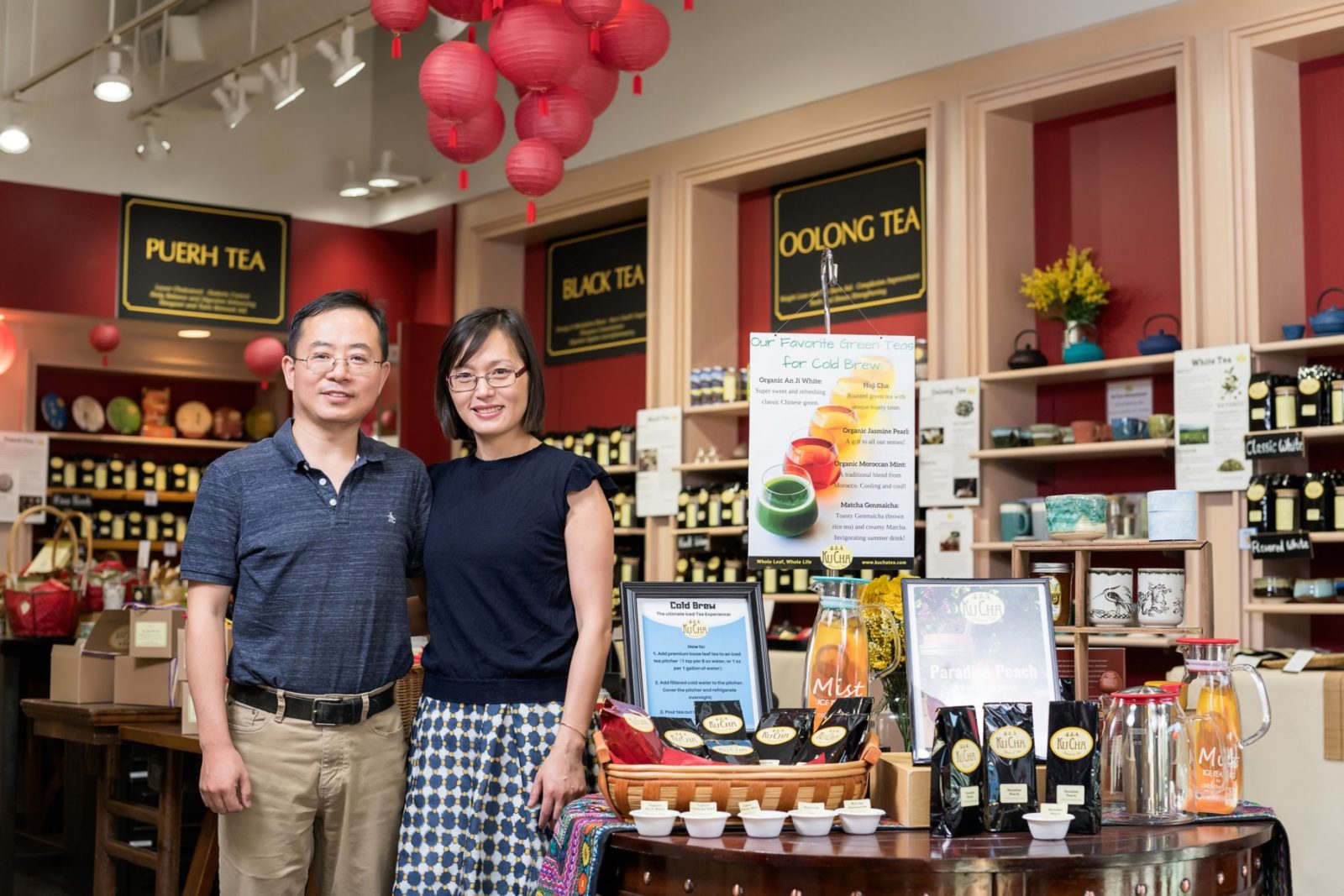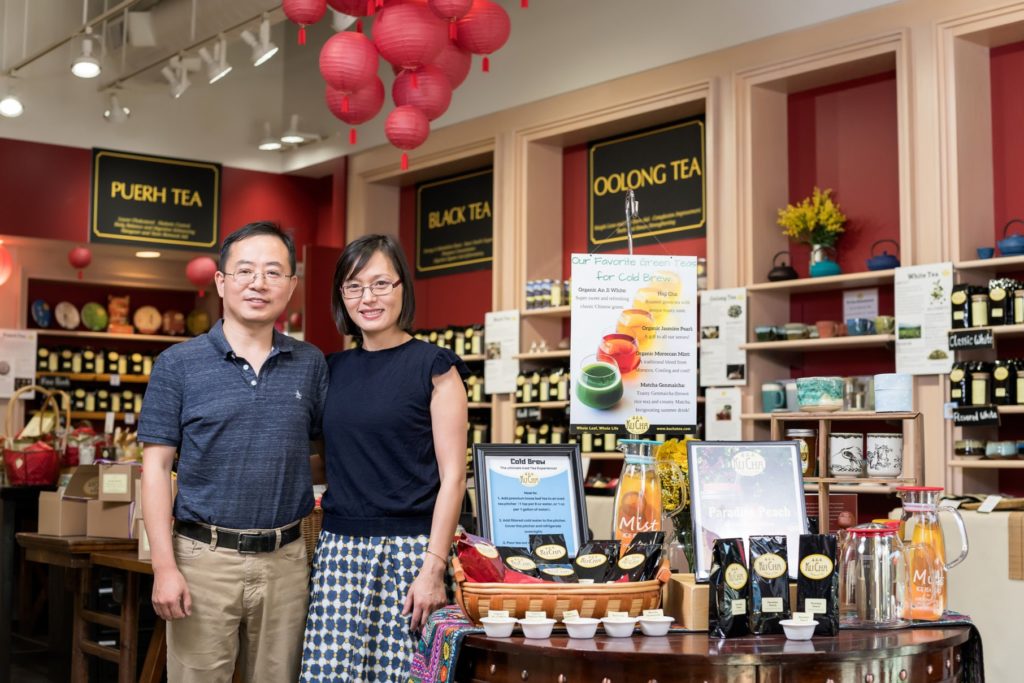
For nearly 20 years we have called beautiful Boulder home. And every day we feel immense gratitude for this progressive city — for its warm citizens, its compassionate embrace of people from diverse backgrounds, and its world-class stewardship of natural resources.
We moved here as young newlyweds, achieved graduate degrees from CU, started a business and now raise our two young boys in our favorite town.
Niwot’s Curse? It’s real! Once we arrived, we worked hard to make sure we could remain, and contribute.
Our story does not begin at the eastern edge of the Flatirons, however.
Rong’s Hometown Known for Rice and Freshwater Fish
I grew up in Lianshui, a small city of 115,000 in Jiangsu Province, southeast China. Lianshui means “ripple,” which may not surprise, given the things for which the area is known: freshwater fish, and rice. Water, and its ripples, are a big part of life in my region.
My city did not grow tea, but my hometown province does. We even carry the tea, called Bi Luo Chun, in Ku Cha House of Tea. Bi Luo Chun was a “tribute tea” in ancient China, reserved only for the royal family. It was so prized that the emperor declared harvesters of the tea must be teenage maiden girls, with their hair fashioned into curly updos, or Luo Ji, in Chinese.
It is the most delicate tea in the store, with exceptionally tender greens. And it is not a tea I grew up drinking in Lianshui.
Instead, we normally brewed very simple tea, and sipped it all day. But when guests arrived, we would break out the Bi Luo Chun. My mother was an elementary school teacher, and my father worked in a factory, while practicing acupuncture on the side. In our family, special tea like Bi Luo Chun was awfully precious.
It wasn’t until I was in college, in Beijing, that I sipped “fancy tea.” That first sip floored me. How could tea taste this good? Little did I know that cup would one day lead to the co-ownership of a Chinese tea house in Colorado.
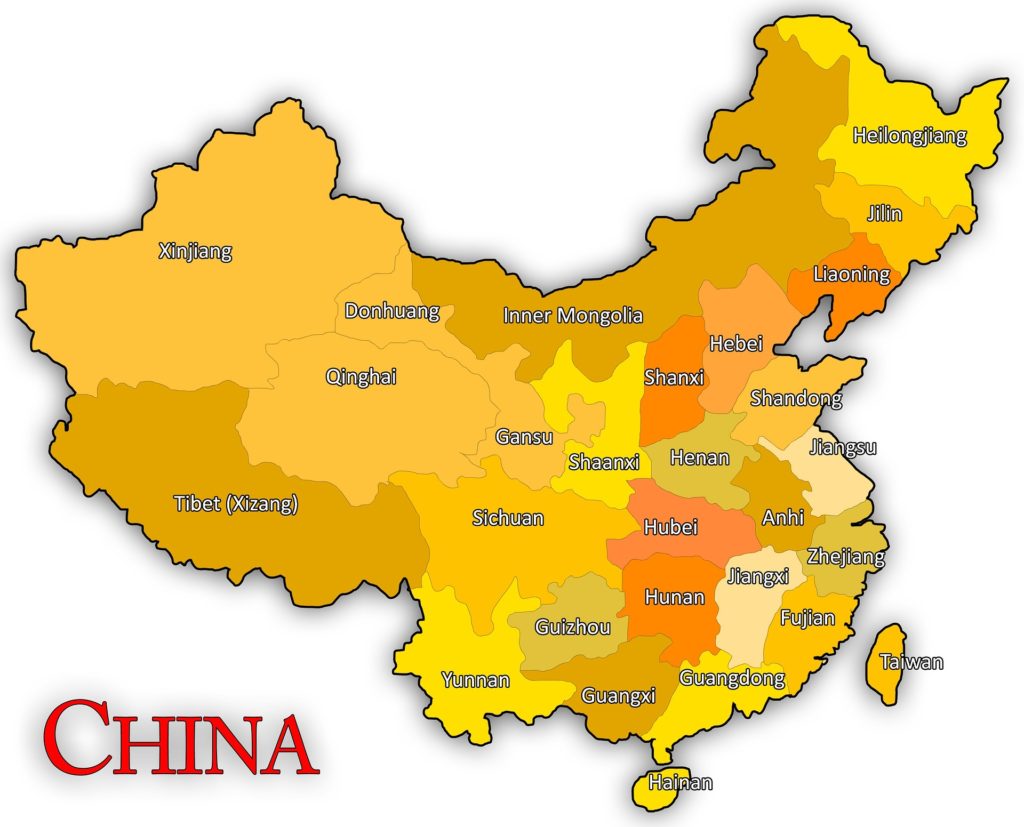
Qin Grew Up in a Land of Coal, Factories and Tea Merchants
Qin is from the Taiyuan, the capital city of Shanxi Province in northern China. Where my city is about the same size of Boulder, Shanxi today has more than 4 million residents, which is close to 7 times the population of Denver.
That’s a big city.
Shanxi is a landlocked province, with the Taihang Mountains towering to the east. In many ways, the geography is similar to the Front Range: a high plateau bounded by mountains.
Shanxi is known for coal, not tea cultivation. Enormous factories now dot the landscape as well. But the area also emerged as a trading center in history, and tea became a focus. Traders would ship tea from southern areas of China up to Shanxi, and then carried on camels’ backs across China and into places like Mongolia and Russia.
Like me, Qin grew up sipping simple tea. His mom was a schoolteacher, his father an electrical engineer, and they also put aside the fancy tea for special occasions.
We share the experience of not savoring more refined tea until we were in college.
The GRE Brought Rong and Qin Together in Beijing
Qin and I studied hard in high school, and we attended good schools, both in Beijing. My school, Beijing University, is considered the Harvard of China. And Qin’s, Tsingshua University, is more like the MIT.
How did we meet? We both lived in Beijing, but the city has more than 21 million people, and we didn’t even attend the same school. The chances of our bumping into each other were not high!
It was our studies that brought us together. We took the same class to prepare for the GRE, the standardized test that we needed to gain admission to universities in the United States.
Moving to Boulder for Graduate School, and Opening Ku Cha
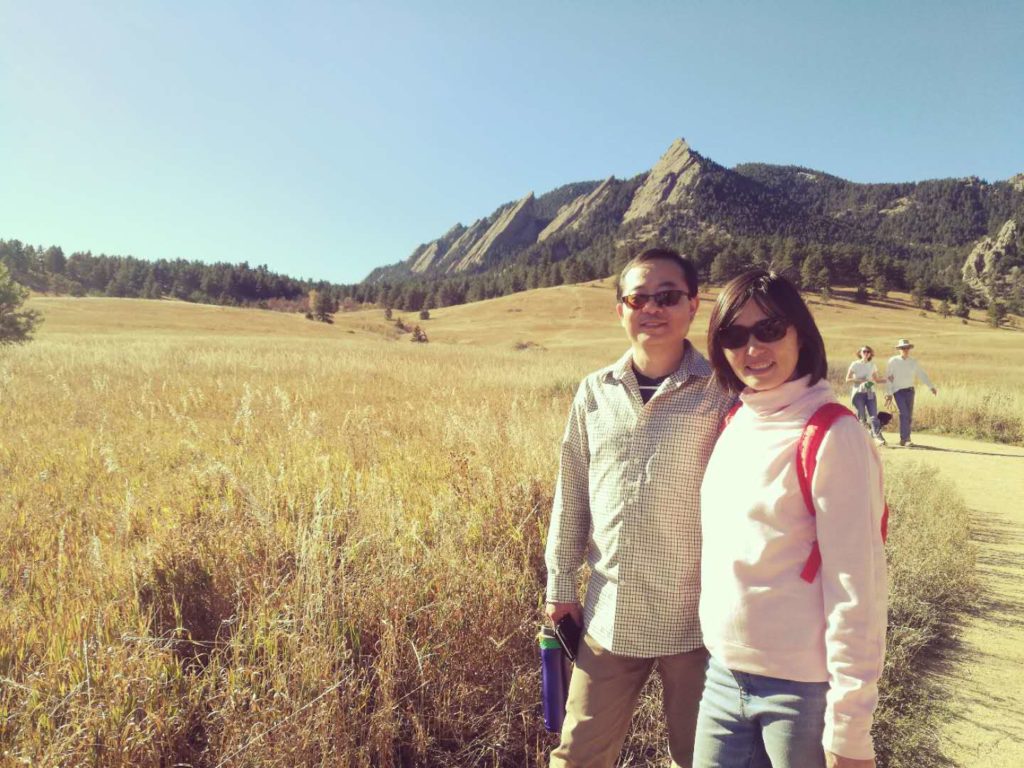
We moved to Boulder in 2001, for graduate school. I was in the MBA program, and Qin received a master’s degree in electrical engineering.
After school, I went into finance and became a banker. Being a banker is nothing like being a tea merchant. Among other things, my job moved me to London for a year, while Qin remained in Boulder.
And what did Qin do while I scrutinized balance sheets and investments?
He opened Ku Cha House of Tea.
Qin deserves all of the credit for getting Ku Cha off the ground, and building it while I was working in a bank. But I do deserve a little notice for those early years. During my senior year of the MBA program, the class was directed to create one-page business proposal.
My plan? A tea shop in Boulder. The class collaborated to turns some of the proposals into working business plans. But mine got voted down.
To this day, we don’t work with a formal business plan.
The Story Behind Our Name
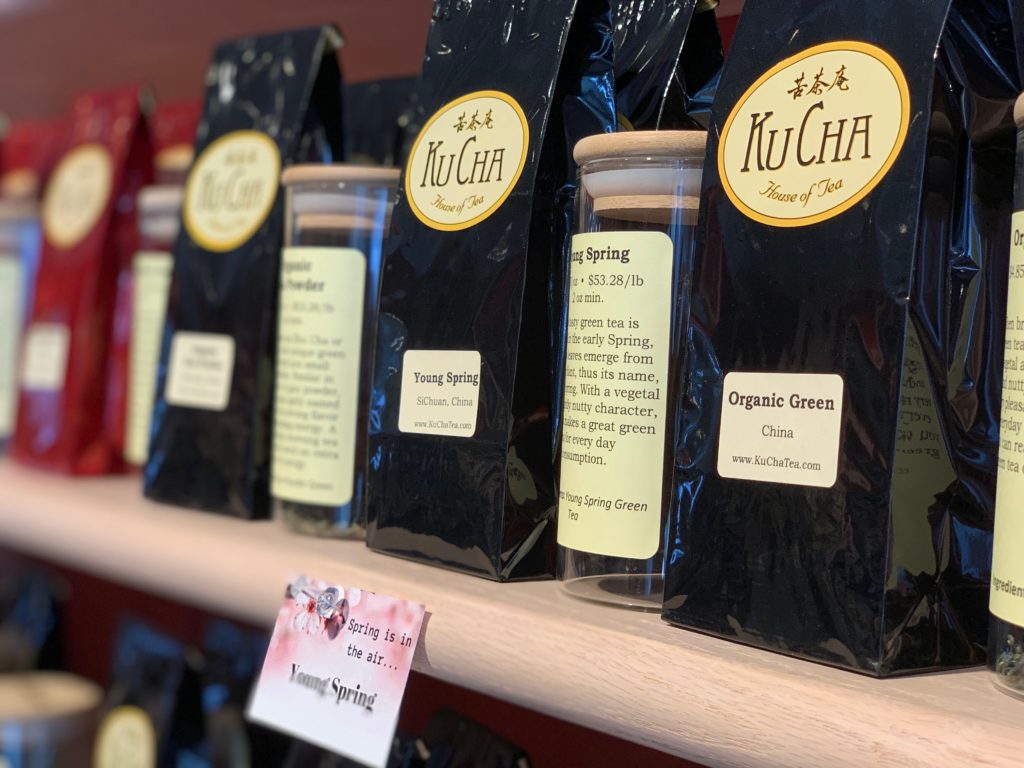
It showed when we opened our first shop, on 9th Street near the St. Julien in 2005 — on December 27. The holiday shopping season? We completely missed it! We really didn’t know anything back then about running a business. We were nerds.
Why did we call it Ku Cha House of Tea?
In Chinese, “Ku” means bitter, and “Cha” means tea. So we set out to sell bitter teas? Yes and no.
All real tea, from the plant Camellia sinensis, contains tannins. And tannins have a bitter flavor. But the bitterness in tea fades quickly with each sip. In fact, tea transforms from bitter to sweet as we enjoy our cups. This evolution is called “Hui Gan” in Chinese, or “sweet-after.”
We appreciate how savoring tea represents a life journey. One enjoys sweetness, but only after triumphing over hardships and bitter moments. In other words, without a little bitterness, there is not sweetness.
From One Shop in Boulder to Stores Across the Front Range
In 2007, we moved to a nice spot on 13th Street, just down the street from what today is Post Brewing. Two years later, I was blessed with my first pregnancy, and decided to leave banking to help build Ku Cha into a business that could support our family while also enriching our beloved Boulder community.
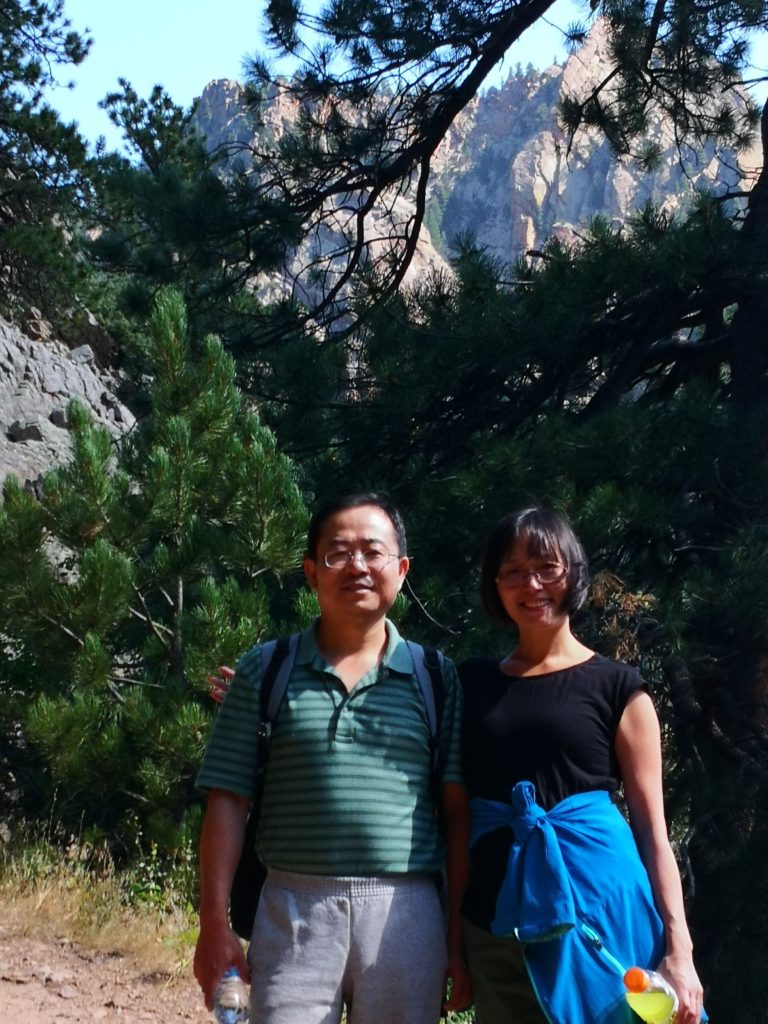
We moved yet again, in 2011, to a spot on Pearl Street just west of Broadway that today is home to a Turkish rug store.
We finally opened our flagship store, in the heart of the Pearl Street Mall, in January of 2017.
Running a shop on the Pearl Street Mall fulfills a long-held dream. The Mall stands not only as a showcase for Boulder’s progressive, innovative spirit. It also serves as a model nationwide for cities looking for ways to revitalize their downtown business areas.
Now, we also own Ku Cha House of Tea shops in downtown Fort Collins, and in Denver’s Cherry Creek North neighborhood. Each of the cities — Boulder, Fort Collins and Denver — are quite different. We have worked to build stores in each of them that harmonize with their surrounding urban environments.
The goals, always: To introduce people to the many pleasures of tea. And to serve all of our customers with the finest quality teas and accessories in the world.
Our journey from China to the Pearl Street Mall has been unexpected, enlightening and full of surprises, struggles and many pleasures.
Bitter moments? Of course. Anybody who has ever started a business understands the many hurdles and hardships that emerge every day.
And thanks to those struggles, we enjoy so many sweetnesses every day, too.
We are overflowing with gratitude.

